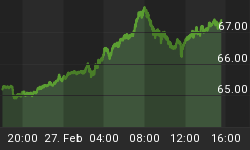The popular softdrink Fanta was launched in 1940 due to the American trade embargo of Nazi Germany, which affected the availability of Coca-Cola ingredients.
Now, with many western companies exiting the Russian market due to the invasion of Ukraine, a potential withdrawal of Coca-Cola from the market wouldn’t be nearly as dramatic today as it was back then–at least from a beverage choice perspective. The market is now saturated with them.
Nor would it necessarily be difficult to replace McDonald’s.
After mounting pressure and an extended silence from the two Western giants, both McDonald’s and Coca-Cola announced on Tuesday they would be pulling up stakes in Russia over the Kremlin’s brutal invasion of Ukraine.
Starbucks has also joined in the exodus.
“McDonald’s has decided to temporarily close all our restaurants in Russia and pause all operations in the market,” CEO Chris Kempczinski said in a statement Tuesday.
“In the thirty-plus years that McDonald’s has operated in Russia, we’ve become an essential part of the 850 communities in which we operate, [...] at the same time, our values mean we cannot ignore the needless human suffering unfolding in Ukraine,” Kempczinski said.
On Tuesday, Starbucks CEO Kevin Johnson told employees that the company would suspend all business activity in Russia, saying that “our licensed partner has agreed to immediately pause store operations and will provide support to the nearly 2,000 [employees] in Russia who depend on Starbucks for their livelihood."
Starbucks, which has all of its café shops franchised, had recently condemned the Russian attack on Ukraine and pledged to donate royalties from its Russian business to humanitarian causes in Ukraine.
Likewise, Coca-Cola followed suit, saying that it would monitor any changes to the situation.
Over the past couple of days, pressure had mounted, most notably voiced on social media where #BoycottMcDonalds and #BoycottCocaCola have been trending on Twitter.
American actor Sean Penn, who was in Ukraine working on a documentary when Russian forces invaded, urged Americans on Twitter to boycott Coca-Cola, PepsiCo and McDonald’s until they suspended their operations in Russia.
In Ukraine, three supermarket chains announced they are removing Coca-Cola products from their store shelves.
And investors themselves were pushing for a withdrawal or suspension of operations there.
New York state's pension fund, with an estimated $280 billion in assets under management, and is also a McDonald's investor, has urged the U.S. to consider pausing or ending business operations in Russia.
“We believe that companies that continue to operate in Russia and invest in Russian assets face significant and growing legal, compliance, operational, human rights and personnel and reputational risks,” the fund's trustee, Thomas DiNapoli, wrote in a letter to several U.S. companies that are still operating in Russia.
The New York Common Retirement Fund's stakes in McDonald's was valued at approximately $410 million at the end of last year.
According to data published by QSR a few years ago, the average McDonald's restaurant takes in around $2.7 million a year in sales. According to the data from late 2021, McDonald's has 847 locations in Russia and 108 in Ukraine.
Since 2014, when Russia invaded Crimea, McDonald’s decreased its ownership from 100% to roughly 84% of restaurants in Russia. All the restaurants in Ukraine are run directly by the company.
Those restaurants accounted for $2.1 billion in revenue for the company last year. According to the company’s filing, Russia and Ukraine based restaurants account for 2% of McDonald's sales, about 9 percent of its revenue, and 3% of its operating income.
McDonald’s has been caught in the economic crossfire once before, during a Russia-U.S. geopolitical row.
In 2014, shortly after Moscow annexed Ukraine's Crimea region and the U.S. imposed sanctions on Moscow, the Russian government opened an investigation into more than 200 McDonald's restaurants, nearly half of the fast-food chain's locations in the country at the time. The authorities closed four restaurants over what they said were sanitary violations.
Yet, several other U.S.-based chain companies were more critical of Russian invasion in Ukraine.
One of the reasons for it might be that the vast majority of their locations are run by franchisees and not by companies, therefore the revenue they are receiving through licensing fees is much smaller and the financial impact of withdrawing from the Russian market would be smaller.
The vast majority of more than 1,000 Yum Brands locations in Russia and Ukraine, Taco Bell, KFC and Pizza Hut are also franchised, and the company recently said it is suspending all investment and restaurant development in Russia.
Restaurant Brands International QSR, Burger King and Domino’s Pizza parent company, also remains open in Russia, although all of its 550 locations are operated by franchisees.
Other companies like Apple, H&M, IKEA, Ford and many others have either paused sales, imposed restrictions or closed stores in Russia in response to the invasion of Ukraine.
















